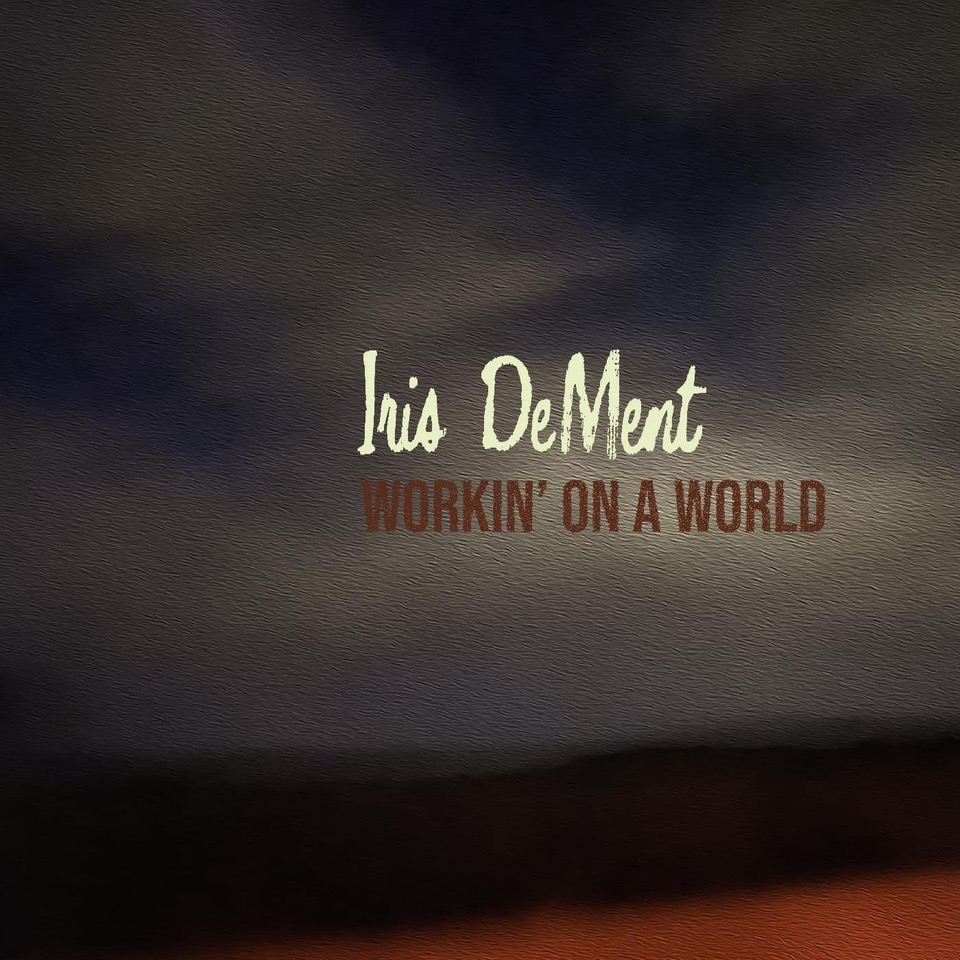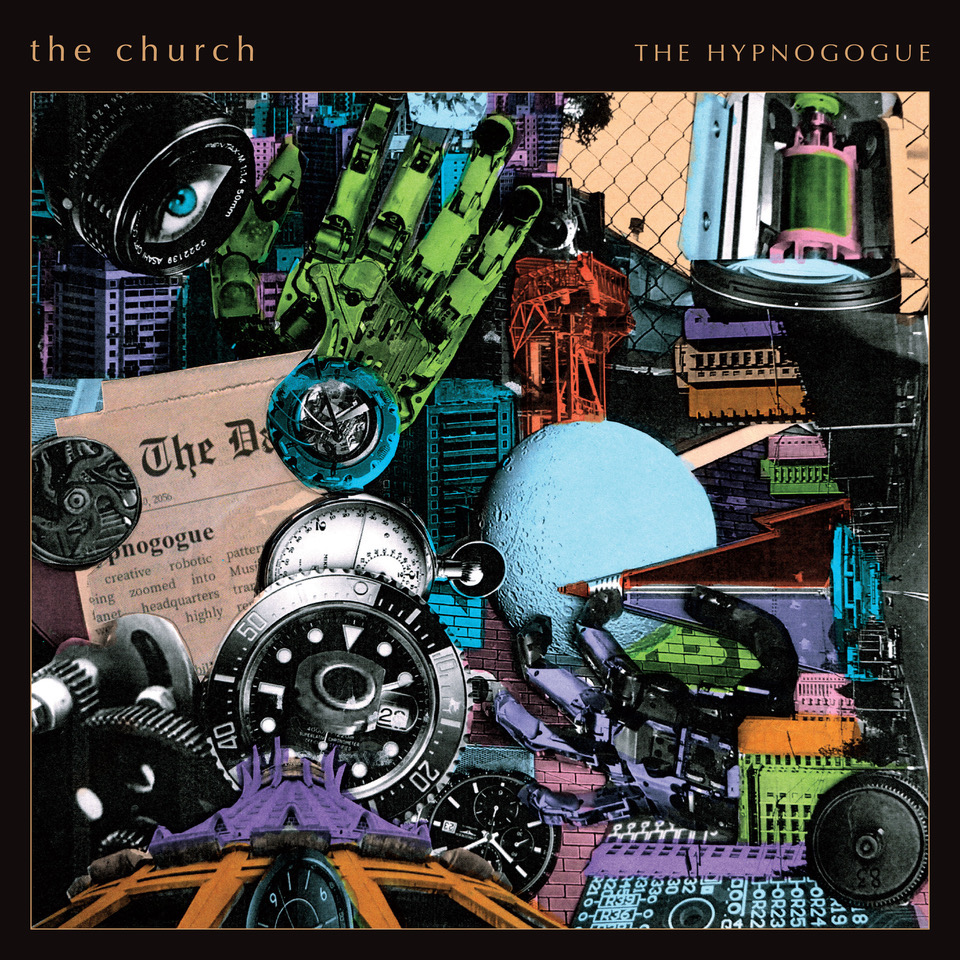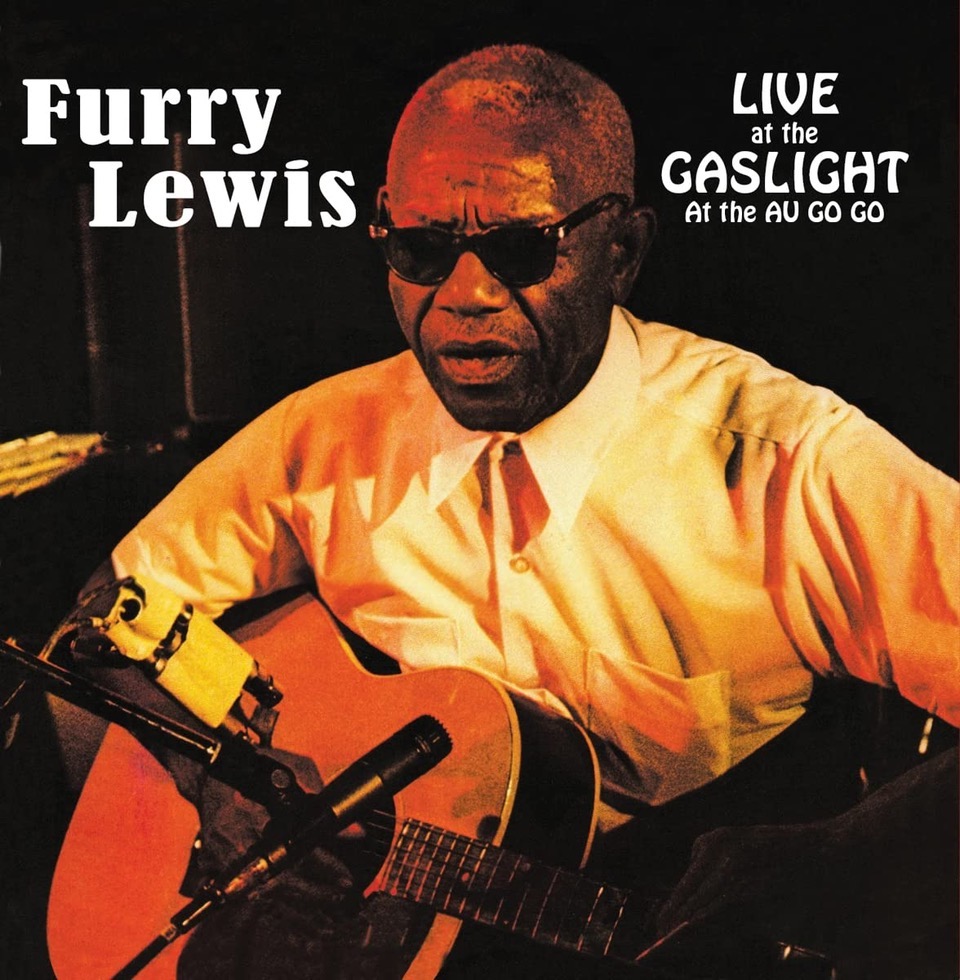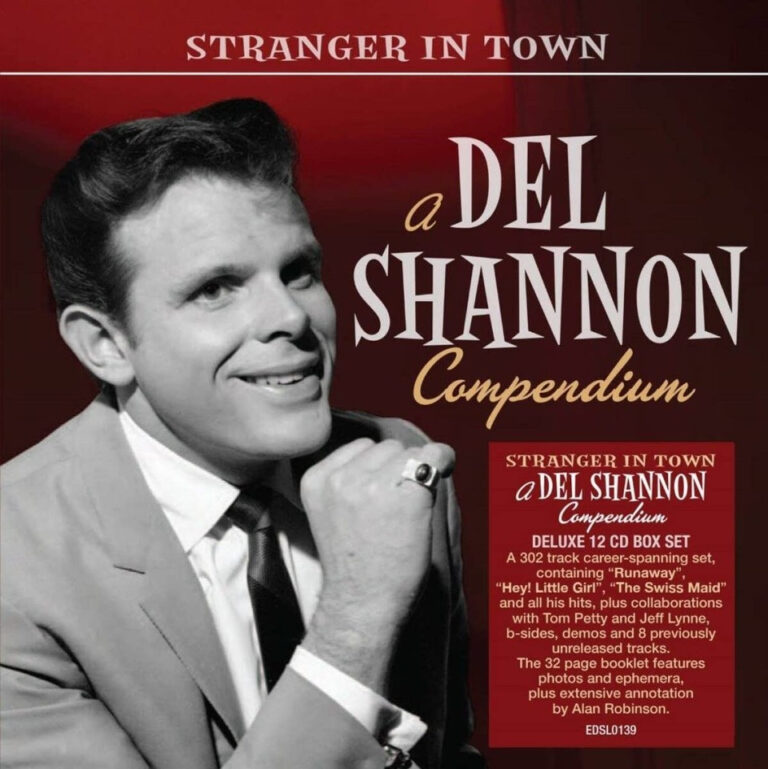Germany’s Bear Family label often outshines all the competition with its gargantuan, career-spanning box sets. Not when it comes to rocker Del Shannon, however. Granted, that company’s eight-CD Shannon anthology, Home and Away, isn’t exactly insubstantial. But that 2005 collection covers nothing released after 1970, and its list of 226 selections falls short of what you’ll find in the new Stranger in Town: A Del Shannon Compendium, which contains 301 tracks (not 302 as a cover blurb indicates).
This 12-CD anthology from Demon – a label based in the U.K., where Michigan-born Shannon often enjoyed more popularity than he did in the States – embraces all his albums, starting with 1961’s Runaway with Del Shannon and including such standouts as 1965’s Del Shannon Sings Hank Williams, 1973’s Live in England, and 1981’s Drop Down and Get Me. Also here are all the non-album singles, 62 rare tracks and demos that appeared on the Bear Family release, and eight previously unavailable songs. Original release dates range from 1960 to 1991, the year after the singer’s suicide at age 55.
Not many acts deserve this degree of comprehensive treatment, but Shannon most certainly does. He was a terrific singer with a fantastic range and an unforgettable falsetto, not to mention a fine songwriter: he solely composed more than half the numbers on Stranger in Town and co-wrote many of the rest.
Among his self-penned songs are 1961’s chart-topping “Runaway” (co-written with keyboardist Max Crook) and its follow-up, “Hats Off to Larry” – both of which memorably employ Crook’s innovative clavioline keyboard – and 1964’s propulsive “Keep Searchin’ (We’ll Follow the Sun).” Shannon also scored with such great original material as “Little Town Flirt” (co-written with Marion McKenzie), “So Long, Baby,” and “Hey! Little Girl.” Many of his songs that didn’t chart are as memorable as the ones that did.
When he picked material to cover, moreover, he evidenced excellent taste. Among the tunes he winningly interprets here: “I’m Gonna Be Strong,” the Barry Mann and Cynthia Weil number that provided a hit for Gene Pitney; the Searchers’ “Needles and Pins” and “When You Walk in the Room”; the Box Tops’ “The Letter”; the Four Seasons’ “Rag Doll”; Tim Hardin’s “Reason to Believe”; the Lovin’ Spoonful’s “Summer in the City”; and the Rolling Stones’ “Out of Time” and “Under My Thumb.” You need to be quite a singer to take on Roy Orbison’s songs, but Shannon proves up to that task as well with excellent covers of “Oh, Pretty Woman,” “Crying,” and “Running Scared.”
It’s no wonder that his fans have ranged from Tom Petty, who produced Drop Down and Get Me, to the Beatles, who loved his work back when they were barely known outside of Liverpool. (The admiration was mutual; in June 1963, Shannon’s version of “From Me to You” became the first Lennon/McCartney song to appear on U.S. charts – six months before the Fab Four themselves made the cut.) Other fans include Bruce Springsteen and Jeff Lynne, as well as Neil Young, whose vocal work at times sounds extremely reminiscent of some of Shannon’s 1980s performances.
Yet another admirer is Little Steven. When I met with him a few years ago, we got to talking about the first records we ever bought, and I told him that “Hats Off to Larry” had been my own first purchase. “Good one!” he said, with a grin that was big even by Steve Van Zandt standards.
Also Noteworthy

Iris DeMent, Workin’ on a World. Folk and country singer/songwriter Iris DeMent takes her time making albums. She created her latest, Workin’ on a World, over six years. The follow-up to 2015’s The Trackless Woods, it is only the seventh record she has released since 1992 when she debuted with the deservedly acclaimed Infamous Angel.
Well produced by Jim Rooney, who also worked on that first record, the new album is a home run by any measure. It’s also a bit of a family affair: DeMent’s husband, the great folk singer/songwriter Greg Brown, penned one of the songs and co-authored two of the others, and Brown’s daughter Pieta Brown, herself a first-rate singer/songwriter, collaborated on two of the other numbers with DeMent.
The largely topical material is as powerful lyrically as it is musically and is peppered with references to such people as Martin Luther King, Jr., John Lewis, Mahalia Jackson, the Chicks (aka the Dixie Chicks), and Congress’s the Squad. One standout is the poignant “The Sacred Now,” a co-write with Pieta, in which DeMent proclaims, “Those who stand to gain draw dividing lines / You’re over there with yours, I’m over here with mine / We can’t speak and yet somehow, we all share the sacred now.”
Perhaps the best number is the eight-minute “Going Down to Texas,” whose sweet melody and catchy piano work contrast with searing lyrics about such subjects as hypocritical religious leaders, police misconduct, the need for gun control, and the lies that ignited the Iraq war. (One disappointment: for some reason, an excellent verse about the Israeli/Palestinian conflict didn’t make it into the song’s recorded version.)
As for DeMent’s vocals, Greg Brown is obviously prejudiced but he wasn’t far off the mark in his assertion a few years ago that he “got married to the greatest country singer since Tammy Wynette.”

The Church, The Hypnogogue. Though the Church has never scored big in America, this Australian progressive and psychedelic rock outfit has been cranking out noteworthy and popular albums on its home turf for four decades, albeit with an evolving lineup. The only remaining original member is singer, songwriter, and bassist Steve Kilbey, though drummer Tim Powles has been on board since 1994. Rounding out the current band are guitarists Ian Haug and Ashley Naylor and multi-instrumentalist Jeffrey Cain, all of whom joined much more recently.
Though the Church’s music has become increasingly sophisticated over the years, it hasn’t changed as much as the personnel list. The Hypnogogue, the group’s 26th album, is being pitched as somewhat of a departure because it ranks as the group’s first concept album. In fact, though, the lyrics aren’t always prominent in the mix, which is just as well, since they deliver a convoluted sci-fi song cycle about a rock star from Antarctica who travels to Korea and meets the inventor of a process that pulls music out of dreamers’ heads.
Perhaps the Church has hooked up with such an inventor because this music – which may remind you of outfits like Echo and the Bunnymen, the Blue Aeroplanes, the Call, and Psychedelic Furs – is indeed dreamy. It’s also consistently engrossing.

Furry Lewis, Live at the Gaslight at the Au Go Go. Furry Lewis, who was born in Mississippi in the 1890s, had been making music for nearly half a century when he performed the 1971 concert preserved on this album. During most of his career, however, his innovative country blues guitar and amiable vocals garnered such a small audience that he had to support himself by working as a street cleaner in Memphis. But the tide began to turn in the late 1960s and by early in the following decade he was opening for the Rolling Stones and appearing on Johnny Carson’s Tonight Show.
This well-recorded August 1971 solo concert, Lewis’s first in New York in more than 20 years, took place just as his career was finally beginning to gain traction. (The applause at the end of each song suggests an audience of perhaps 50 people.) The newly reissued album, which first appeared shortly after the show and had been out of print for years, includes seven of Lewis’s own compositions and his arrangements of the traditional “When I Lay My Burden Down” and “John Henry.” Also here are covers of Sleepy John Estes’s “Brownsville” and Jimmie Rogers’s “Waiting for a Train” that the album erroneously credits to Lewis. That mistake is regrettable, as is the failure to augment the brief original liner notes. But what matters most is the music, and it’s all good.
Jeff Burger’s website, byjeffburger.com, contains five decades’ worth of music reviews, interviews, and commentary. His books include Dylan on Dylan: Interviews and Encounters, Lennon on Lennon: Conversations with John Lennon, Leonard Cohen on Leonard Cohen: Interviews and Encounters, and Springsteen on Springsteen: Interviews, Speeches, and Encounters.



